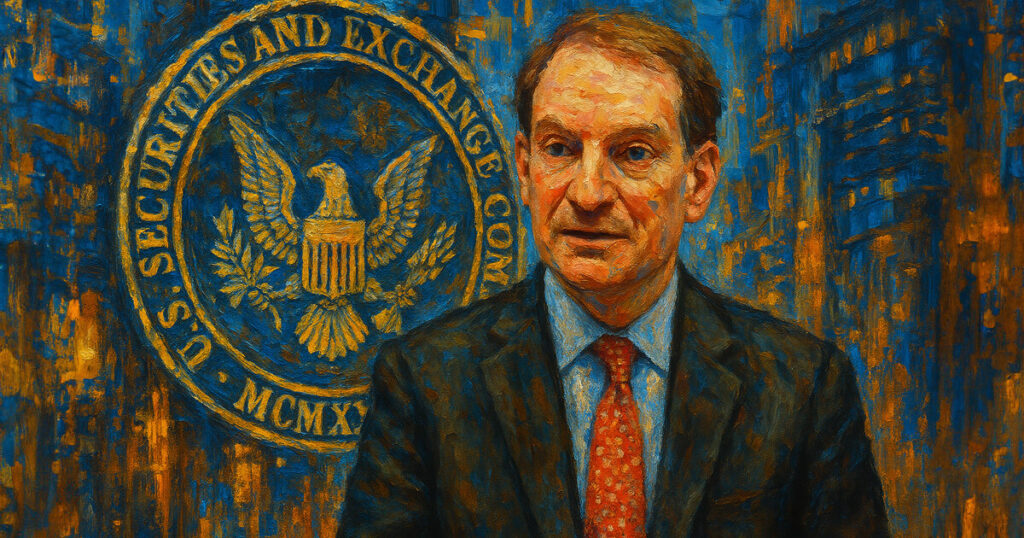The confirmation of Paul Atkins as Chair of the Securities and Exchange Commission (SEC) by the United States Senate marks a significant shift in the regulatory approach towards digital assets. With a background as a former SEC Commissioner and Wall Street consultant, Atkins is poised to recalibrate the agency’s stance on cryptocurrencies and blockchain technology.
Atkins’ nomination was supported by Senate Republicans in a 52-44 vote, signaling a departure from the enforcement-focused approach of former Chair Gary Gensler. During his confirmation process, Atkins emphasized the need for a rational and coherent regulatory framework for digital assets. He expressed his intent to collaborate with the Commodity Futures Trading Commission (CFTC) and Congress to address gaps in jurisdiction and rulemaking.
The new Chair’s regulatory orientation aligns with a principles-based approach that supports digital asset innovation while ensuring investor protection. This contrasts with Gensler’s enforcement-heavy oversight, which led to over 100 crypto-related enforcement actions during his tenure. Atkins advocates for a regulatory structure that fosters innovation in the digital asset space while maintaining a principles-based approach to investor protection.
Under Atkins’ leadership, the SEC is expected to accelerate the approval of digital asset exchange-traded funds (ETFs) and formalize the distinction between decentralized and centralized digital assets. This shift in leadership is seen as a structural inflection point that could reshape how capital markets interact with tokenized instruments.
In addition to his focus on digital assets, Atkins also aims to streamline regulatory burdens for traditional markets. He has voiced support for reducing disclosure requirements and simplifying capital formation rules for private companies. Furthermore, Atkins has indicated a willingness to revisit accredited investor definitions, suggesting that financial sophistication should determine access to private markets.
Atkins’ appointment has drawn both praise and criticism. Senate Banking Committee Chair Tim Scott believes that Atkins will bring regulatory clarity to digital assets, while some have raised concerns about his ties to Wall Street and advisory roles with companies like FTX. Nevertheless, Atkins is expected to lead the SEC through a period of transition, redefining crypto oversight, restructuring enforcement priorities, and potentially reopening discussions around self-regulatory organizations for digital markets.
Overall, Atkins’ confirmation as Chair of the SEC signals a shift towards a more principles-based regulatory approach that supports innovation in the digital asset space while maintaining investor protection. His leadership is expected to shape the future of crypto regulation in the United States and could have far-reaching implications for both traditional and digital markets.

